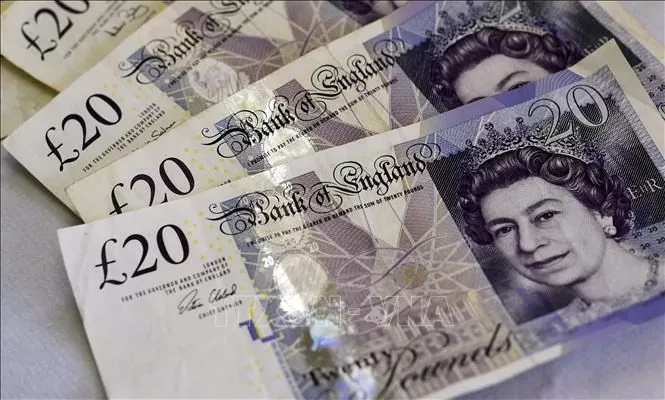The UK's FTSE 100 stock index continued its streak of gains over the weekend, surpassing the 8,500-point mark for the first time.
 |
| Pound falls, pushing UK stocks to record highs. (Source: AFP) |
On January 17, most shares of the 100 largest capitalization companies (FTSE 100) listed on the London Stock Exchange (LSE) increased in price amid the falling value of the pound and increasing predictions that the Bank of England (BoE) will cut interest rates at its meeting next month.
The FTSE 100 index rose 1.6% to a new high of 8,533.43 points. Although it closed down at 8,505.22 points, it was still the first time in history that the UK blue-chip stock index had broken through the 8,500 mark.
The three-day rally took the FTSE 100 past its previous record of 8,474 points, set in May 2024. The index has gained about 4% so far this year amid strong gains in global equity markets.
The rally was fuelled by UK retail sales figures for December 2024, released on January 17, along with economic data this week showing that inflation eased to 2.5% last month from 2.6% in November.
Financial experts are increasingly expecting BoE policymakers to consider cutting interest rates from the current 4.75% to 4.5% at their next meeting in early February.
Also on the third weekend of January, the pound fell in value, with 1 pound worth only 1.218 USD. This happened after the Office for National Statistics (ONS) released a report showing that UK retail sales fell 0.3% in December.
Money markets are now predicting two or three 0.25 percentage point rate cuts by the BoE this year.
Currency markets were rocked by a sell-off in UK government bonds last week, but bond prices have rebounded this week, reducing the government’s borrowing costs, as expectations of a rate cut have risen and Chancellor of the Exchequer Rachel Reeves has insisted there will be no changes to the financial rules.
The yield on the benchmark 10-year British government bond fell to 4.65% on January 17, its lowest level since January 7, the first day of a bond sell-off last week that pushed the cost of borrowing for the 10-year note to its highest since 2008. Meanwhile, the yield on the 30-year British government bond, which hit its highest level since 1998 last week, also fell back.
Source: https://baoquocte.vn/dong-bang-giam-day-chung-khoan-anh-tang-ky-luc-lan-dau-tien-vuot-moc-8500-diem-301350.html























![[Photo] National Assembly Chairman Tran Thanh Man visits Vietnamese Heroic Mother Ta Thi Tran](https://vphoto.vietnam.vn/thumb/1200x675/vietnam/resource/IMAGE/2025/7/20/765c0bd057dd44ad83ab89fe0255b783)











































































Comment (0)